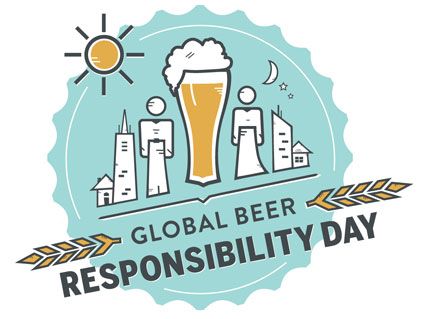News
Carlsberg puts its name on the chopping block for Global Beer Responsibility Day
This article is more than 10 years old.
Shenanigans included discount taxi rides and much more

‘lsberg’ – taking the ‘Car’ out of drinking (photo: Carlsberg)
If you walked past Carlsberg’s headquarters in Copenhagen on Friday, you might have noticed that the ‘Car’ part of its iconic 10-metre ‘Carlsberg’ logo was shut off.
And no, the technical staff hadn’t been sampling their own supply, even though it was Friday. Carlsberg was simply marking Global Beer Responsibility Day (GBRD) by taking the ‘Car’ out of drinking.
As part of GBRD, the Danish brewery giant teamed up with a host of other big players in the beer industry, including Anheuser-Busch and Heineken, to promote the responsible consumption of beer worldwide.
“Beer plays an important role in local cultures and economies, and together we wanted to contribute to this positive influence of beer in society by promoting that our products are consumed responsibly as part of a balanced and healthy lifestyle,” explained Cees’t Hart, the CEO of Carlsberg.
READ MORE: Carlsberg downgrades expectations after second quarter
Taxi app discount
It is the first year that the big breweries have teamed up to celebrate GBRD. Carlsberg promoted the initiative in nine of its global markets over the weekend, engaging 5,500 employees, involving over 100,000 retailers and reaching some 1.5 million customers in the process.
Aside from the logo shenanigans, Carlsberg agreed to provide discounted rides home for anyone out enjoying a drink in Copenhagen in association with taxi app DRiVR.
There were also some popular initiatives overseas as well.
In Italy, Birrificio Angelo Poretti invited visitors to its stand at the Milan International Expo to experience the effects of alcohol on driving – by wearing special glasses while performing everyday activities.
In Malaysia, Carlsberg engaged with consumers at one of Malaysia’s highest-profile shopping centres, with ambassadors and activities promoting responsible drinking.
And in Russia, Baltika in conjunction with the Russian beer union was present at more than 80,000 retail outlets to talk to sales personnel and consumers about the prevention of the sale of alcohol to minors.











































